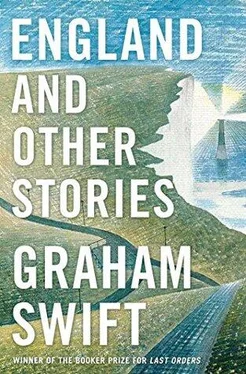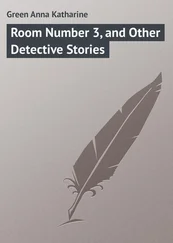‘Well,’ he said, ‘we may as well go straight round the side.’
This disappointed me. I wasn’t going to be allowed to pass through the house. On the other hand, I could see (or could see later with hindsight) that he’d decided, wrongly, to trust me. If trust even came into it.
He liked me, I think. He thought he’d found a friend.
We walked along by the flank wall of the bungalow. There I was on the other side of the fence over which he’d peered at me and over which he could sometimes be seen standing near-naked and ululating.
He’d taken the tin from me and, raising it now like an exhibit or something in a lesson, he said, ‘Isn’t it a sad thing, Jimmy, that one of the great heroes of the Greek myths, one of the most glorious of those who fought in the Trojan War, should be reduced to being a tin of scouring powder?’
I hadn’t the faintest idea what he was talking about, but these words made a great impression on me and have stayed with me ever since. I still hear them being spoken in the eloquent, playful yet lamenting way Mr Wilkinson uttered them.
The fact is that it is to this unintelligible but memorable remark I owe all my later discovery and enthralled exploration of the Greek myths. I owe a whole world of narrative and magic and meaning. I owe a whole education.
When my parents asked me later that year what I wanted for Christmas I said at once (having done some precocious research at my primary school) that I wanted a book that would tell me all the stories of the Greek myths, the Trojan War included. This request rather surprised my parents, but they found me such a book. It was a little beyond me at first, but I grew into it. I have it still.
But more than this. Much more. I owe to Mr Wilkinson’s remark all my lasting fascination not just with how a great Greek hero gets turned into a tin of scouring powder, but with all the strange turns and twists and evolutions this world can take, all the bizarre changes of fortune, for good and bad, it can offer. And I should know about them.
I owe to it an education. And an education.
‘When we say scouring powder, Jimmy, we really mean lavatory cleaner, don’t we? No doubt at your age you have your lavatorial interests. Did you know, Jimmy, that in Elizabethan times a lavatory was called a jakes? A jakes. Ajax. Do you see the connection?’
Again, I hadn’t the foggiest what he was on about, but I found it all beguiling, tantalising.
He took me round to the back of the bungalow where an outflow pipe from his kitchen led into a little gully with a drain hole and a grille. We had something similar beneath our own kitchen. I could see he was now hesitating again, that he wasn’t sure he should be doing this in my company, but I could also sense his mood of wilful risk-taking, that he wanted to let me, even, into his secret. I could see that he’d removed the grille and had been poking about with a stick.
‘Ajax,’ he said. ‘Will it — will he — do the trick?’
Whatever it was that was clogging his drain it was deep down, or else there was some uncooperative bend in the pipe. The hole was abnormally full, almost to overflowing, of dirty water. But it wasn’t just water, it was water with a distinctly reddish colour. It made me think at once of the slop bucket that would be sometimes visible in our local butcher’s, where I’d go with my mother and where there’d be sawdust on the floor and halves of pigs hanging on huge hooks and dripping.
A little bobbing shred of something, a mere gobbet of scum, floated in the water.
Let me say that everything was so much more primitive in those days, even if gentlemen doffed hats. It was so much nearer the Middle Ages. There’d been a war and there’d been rationing. My mother was perfectly capable of skinning and cooking a rabbit, but there came a point when she wouldn’t have liked to admit to this, or even to eat rabbit. When my parents developed their desire for respectability and advancement they really wanted to move into the clean modern age and leave behind them all traces of the ancient gutter. They weren’t squeamish and they weren’t innocent, but they wanted to live tidy lives, and they didn’t like weirdness.
I could see that in theory our street didn’t mind Mr Wilkinson’s being weird, but they minded his being weird in our street. They hoped that somehow something would be done about it. But, short of some superior agent’s stepping in, they believed that by the sheer force of their adverse opinion Mr Wilkinson might be compelled to leave and take his weirdness elsewhere. They wanted him flushed out. In this situation was the whole history of the world.
I could see that the mucky water in Mr Wilkinson’s drain was composed partly of blood and I could see that for some inscrutable and perilous reason Mr Wilkinson wanted me to see it, and not to say anything.
But, yes, I was at heart a conscientious, a truthful boy. I honoured my father and mother. I had a sense of moral responsibility. I’d told my parents about the vegetarianism when I might have said nothing. Now I’d have to tell them about breaking the edict that had followed from that first honesty and — worse — about taking the Ajax tin and going round to Mr Wilkinson’s when I should have stayed within clearly prescribed bounds.
But all this was capped by the greater and more glaring obligation to truth I had: to let it be known that Mr Wilkinson clearly wasn’t a vegetarian — a slander of my own unwitting instigation — and was even, though I hadn’t been able to see into his kitchen, a fairly zealous eater of meat. And, by implication, he was at least in that respect so much less of the weirdo than he’d been unfairly made out to be.
I can never be sure whether it was this action on my part, with all its complexity and for which I was punished by not being allowed out, even into the garden, for most of the next day, which led directly to Mr Wilkinson’s leaving us, which led to his being, as I was to discover later, taken into custody while a search warrant was issued and (discreetly) acted upon for his bungalow.
Having been so roundly punished, I was soon being, confusingly, asked questions by a kindly and patient policeman while my mother tenderly held my hand.
There were things you couldn’t do in those days, the law didn’t allow it, which you can do now. It was all very primitive, and perhaps the changes which have occurred since then are further evidence of the importance of education. For example, Mr Wilkinson lived alone, he might have been a homosexual, but he wouldn’t have been allowed by law to be one in any practical sense.
I say this because I’m a homosexual myself, though I didn’t know it then, I discovered it later. You might say I had to be educated into it. There’s a whole other story I might tell, involving me and my parents, which is even more painful in some ways than the story of Mr Wilkinson. But this is not the time, and perhaps you can imagine it. There are plenty of stories, but this is not the time.
But I think about Mr Wilkinson and about what I did to him.
He disappeared anyway. It was what the whole street wanted, but I missed him, I even felt a little bereft. I wish I’d known his first name. A nice couple, the Fletchers, who soon had their first baby, a little girl called Jilly — I remember her name — whom my mother unashamedly adored, moved in. And that was what the whole street wanted too.
There are some people who might say or think of me, now, that I’m a little weird, or at least odd. But then if you’re a professor of Greek you’re allowed to be that, the world even rather expects it of you, especially if your hair has become a snowy fleece and you wear tweed suits and affect white-spotted red bow ties.
Читать дальше












